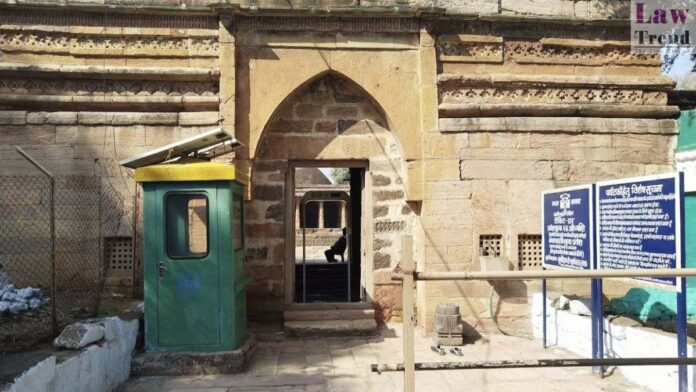Following the controversy surrounding the Gyanvapi complex, the Indore bench of the Madhya Pradesh High Court has made a significant decision regarding the Bhojshala located in Dhar. The court has ordered an Archaeological Survey of India (ASI) survey of Bhojshala. This decision came after the Hindu Front for Justice petitioned the High Court for a scientific survey of the Saraswati Temple at Bhojshala.
The petition filed by the Hindu Front for Justice sought to prohibit Muslims from offering prayers at Bhojshala and to grant Hindus the right to perform regular worship there. After hearing the initial arguments from the petitioner, the High Court issued notices to the state government, central government, and other relevant parties, seeking their responses.
In the petition, an interim application was made, requesting that the ASI be ordered to conduct a survey of Bhojshala, similar to the one carried out at Gyanvapi. The debate on this interim application took place on Monday.

However, the ASI informed the court that a survey of Bhojshala was already conducted in 1902-03, and the report is on court record. According to the ASI, there is no need for a new survey. The Muslim side also contested the need for a survey, arguing that the ASI had issued orders based on the 1902-03 survey, granting Muslims the right to offer prayers on Fridays, an order that is still in effect.
Advocates Harishankar Jain and Vishnushankar Jain, representing the Hindu Front for Justice, argued that previous surveys clearly indicate that Bhojshala is a temple of Goddess Saraswati and nothing else. They asserted that Hindus have the complete right to worship there, and granting them this right would not alter the religious character of Bhojshala.
According to the ASI, the 1902-03 survey report, which is submitted to the court along with photographs, clearly shows images of Lord Vishnu and lotuses. Based on this report, an order was issued in 2003.
The Bhojshala dispute is centuries old, with Hindus claiming it as a temple of Goddess Saraswati. Centuries ago, Muslims allegedly desecrated the site by building the tomb of Maulana Kamaluddin there. Today, Bhojshala still bears images of deities and Sanskrit shlokas. The English had even taken a statue of Goddess Saraswati from Bhojshala to London. The ongoing petition in the High Court claims Bhojshala as a Hindu worship site and accuses Muslims of erasing remnants under the guise of offering prayers. The petition also requests excavation and videography of the Bhojshala premises and includes 33 photographs as evidence.
Also Read
Bhojshala’s history dates back to 1034 when King Bhoj of the Paramara dynasty established the Saraswati Sadan, a major educational institution later known as Bhojshala. During King Bhoj’s reign, a statue of Goddess Saraswati was installed there, which was later excavated near Bhojshala and sent to London in 1880. In 1456, Mahmud Khilji constructed the tomb and shrine of Maulana Kamaluddin.
The timeline of events highlights the longstanding nature of the dispute, which has seen periodic allowances for Hindu worship on Tuesdays and Muslim prayers on Fridays, with restrictions placed on public access at various times. The dispute intensifies whenever Vasant Panchami falls on a Friday, leading to increased tensions.







